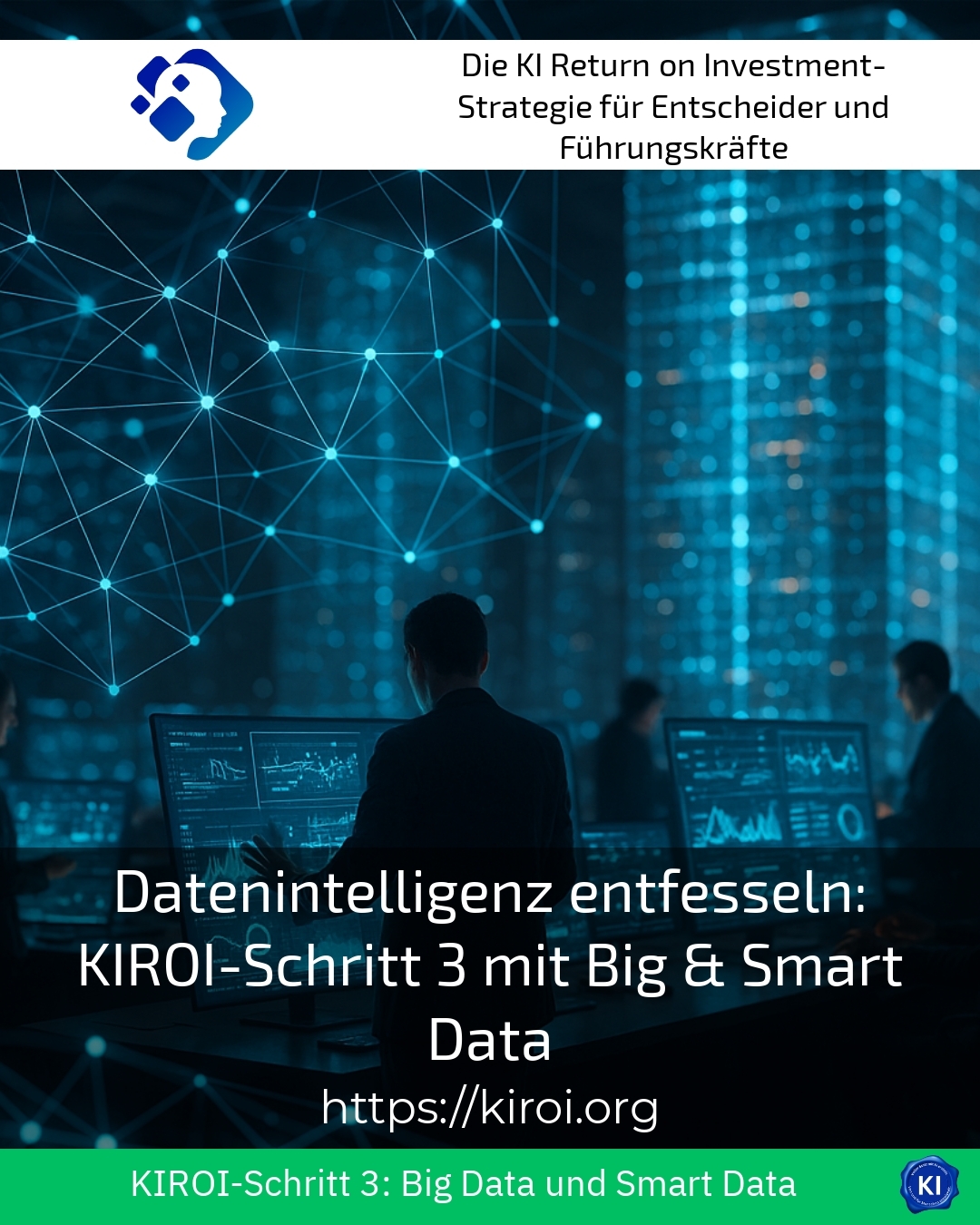Today, data intelligence is an indispensable building block for companies that want to remain competitive. Especially in the age of big and smart data, it's not just about collecting data, but also analysing it in a targeted manner and deriving valuable insights from it. The combination of big data and intelligent evaluation helps organisations to optimise processes and make well-founded decisions.
Data intelligence as the key to efficient data utilisation
Many companies already have large amounts of data, but it is often unstructured and poorly analysed. The challenge lies not only in storing this data, but also in filtering out its true relevance. This is precisely where data intelligence comes in: it combines big data, i.e. large, diverse volumes of data, with smart data, i.e. the targeted utilisation of high-quality information [3]. This transforms raw data into specific recommendations for action.
An example from the healthcare sector shows how data intelligence can contribute to diagnostics: Intelligent analysis of medical image data allows disease patterns to be recognised more quickly and precisely. The benefits for radiologists are enormous, as routine tasks are automated [3]. Logistics companies also use data intelligence to optimise transport routes, which reduces costs and delivery times. Retailers, in turn, use data intelligence to improve their product range by analysing customer behaviour in detail [3][9].
KIROI Step 3: Practically unleash data intelligence
The third step in the KIROI model focuses on how companies can embed data intelligence in everyday life. This is not just about technical solutions, but about building a culture that promotes data-driven decision-making. As part of transruption coaching, companies are helped to utilise suitable technologies and improve their handling of data through targeted employee training [3].
BEST PRACTICE with one customer (name hidden due to NDA contract) A leading e-commerce company used data intelligence to strengthen its customer loyalty. Through the precise analysis of purchasing behaviour and interaction data, the company developed personalised marketing campaigns that significantly improved customer retention and increased conversion rates.
This step is also essential in the financial sector: banks use intelligent algorithms to recognise risks in credit decisions and identify attempted fraud at an early stage. This minimises risk without compromising the customer experience. In mechanical engineering, companies benefit from data intelligence by proactively planning maintenance work to minimise downtime and reduce operating costs [3][5].
Practical tips for implementing data intelligence
A number of measures are recommended so that data intelligence can fully realise its benefits:
- Understand the value of your data: Identify what data sources exist and how they can be utilised.
- Rely on user-friendly tools that make it easier for non-data experts to access insights.
- Promote an open data culture in which the results of analyses are regularly discussed and included in decisions.
These impulses facilitate the transition to a data-driven company in which data intelligence is not just a buzzword, but actually becomes a strategic advantage.
Using data intelligence to secure competitive advantages
In the digital age, competitive advantages are increasingly determined by the intelligent use of data. Companies that use data intelligence to optimise their processes, minimise risks and understand customer needs more precisely are positioning themselves better on the market. Car manufacturers, for example, analyse sensor data from their vehicles in order to plan maintenance intervals more precisely and improve customer service. Retailers use forecasting models for stock management to avoid overstocking or supply bottlenecks [1][9].
In the media industry, data-intelligent algorithms enable a personalised approach, such as streaming services providing tailored recommendations based on user behaviour. This significantly increases customer satisfaction and loyalty to the service [3][9].
My analysis
Data intelligence helps companies to utilise data in a targeted manner and draw valuable insights from it. The combination of big data and smart data makes it possible to organise processes more effectively and make better decisions. However, in addition to technological innovations, implementation also requires a cultural shift towards greater data awareness. KIROI Step 3 offers a practical approach that supports companies in the integration of data intelligence and makes a significant contribution to long-term success.
Further links from the text above:
Unleashing data intelligence: KIROI 3 - Big data meets smart data
What is data intelligence and what does it mean?
Why data intelligence is the key to your business success
For more information and if you have any questions, please contact Contact us or read more blog posts on the topic Artificial intelligence here.















